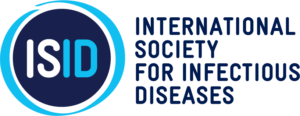The International Society of Infectious Diseases (ISID) recognizes the dangerous impact that climate change has on our environment including the implications this has on the spread of infectious diseases. We aim to reduce our carbon footprint wherever possible.
While we acknowledge the carbon footprint caused by international travel to meetings such as our upcoming International Congress on Infectious Diseases (ICID), we feel the face-to-face interaction with colleagues from around the world cannot be replaced. Communicating your ideas, research and clinical findings to others, receiving feedback and engaging in discussions are crucial to advancing the field and to generating much needed solutions to pressing problems.
Our goal is to provide access to high quality, up-to-date information for all of our colleagues in an environmentally responsible manner. Over the last decades, ISID has built and supported programs, such as ProMED, accessible globally via an easy to use website and currently used by 80,000 subscribers. Our Guide to Infection Control in the Healthcare Setting is another widely-used, online resource which not only allows us to update it more easily, but means we no longer print copies and reduce our paper usage.
The International Congress on infectious DIseases is organized in a different part of the world every two years to provide easy access to attendees in different regions and to reduce the carbon footprint associated with long flights. Specifically for the 19th ICID in Kuala Lumpur, we have made several changes to lessen our carbon footprint further, including:
- Eliminating congress bags and printed programs
- Ensuring water bottle fillers are available and encouraging our delegates to bring their own reusable bottle
- Promoting public transportation options while travelling to the Congress
The Kuala Lumpur Convention Centre successfully attained the EarthCheck Silver Benchmarked Convention Centre Certification in 2019 by ensuring thorough and mindful implementation of its sustainability initiatives, after retaining the Bronze certification since 2007. The Centre’ sustainability efforts are in the areas of waste management, energy conservation, water management, use of Biodegradable Cleaning Products use of locally sourced, sustainable produce whenever possible and the use of environmentally friendly packaging materials.
Do you want to learn more about what you can do to offset your carbon footprint? We encourage you to learn more about carbon footprints and how you can offset your emissions from reputable organizations such as: Gold Standard,TerraPass, and the United Nations Carbon Offset Platform.
We are also proud to support FOOTPRINT - an initiative developed at ISID’s Hackathon at the International Meeting on Emerging Diseases back in 2016. A team of talented young scientists formed an organization to provide humanitarian aid in an environmentally sustainable manner. Following disaster response missions, FOOTPRINT continues to work with local communities as they establish new, eco-friendly water, energy, and heating systems.
